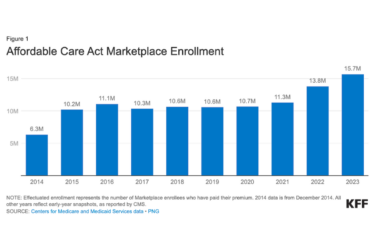
Physicians and other health care providers are just beginning to talk with patients about health care costs and quality. On the leading edge of this trend are oncologists, some of whom are developing tools to stimulate these conversations with cancer patients.
For journalists interested in this topic, a recording is available of a webcast we did on this topic last month. Robert W. Carlson, M.D., a medical oncologist and CEO of the National Comprehensive Cancer Network explained NCCN’s efforts to help patients assess the value of various cancer treatments and to promote a larger decision-making role for patients.
A nonprofit alliance of 27 cancer centers, NCCN has developed a graphic representation, called the NCCN Evidence Blocks, of five key measures that correspond to treatment recommendations. This tool provides the basis for discussions about the efficacy, safety, and affordability of various treatment regimens and the quality and consistency of the evidence supporting those options.
This is an important topic because the costs of all treatments, most notably cancer, continue to rise. Given that the average cost of new tumor-fighting medications is $10,000 per month and that cancer is the leading cause of bankruptcy in the United States, it’s no wonder that oncologists are among the first physicians to discuss patients’ options in this way.
Finally, patients are getting involved in which treatments they might prefer and which ones they can afford. After all, one of the side effects of cancer care is what’s come to be called financial toxicity, as Nick Mulcahy reported for Medscape in 2013.










